Food rules rob us of our ability to truly listen to your bodies and eat intuitively. While many food rules can be obvious, such as not eating carbs, some can be very sneaky and you may not even know you have them! This post will go over what a food rule is, how to identify them in your life and how to break them to find food freedom!
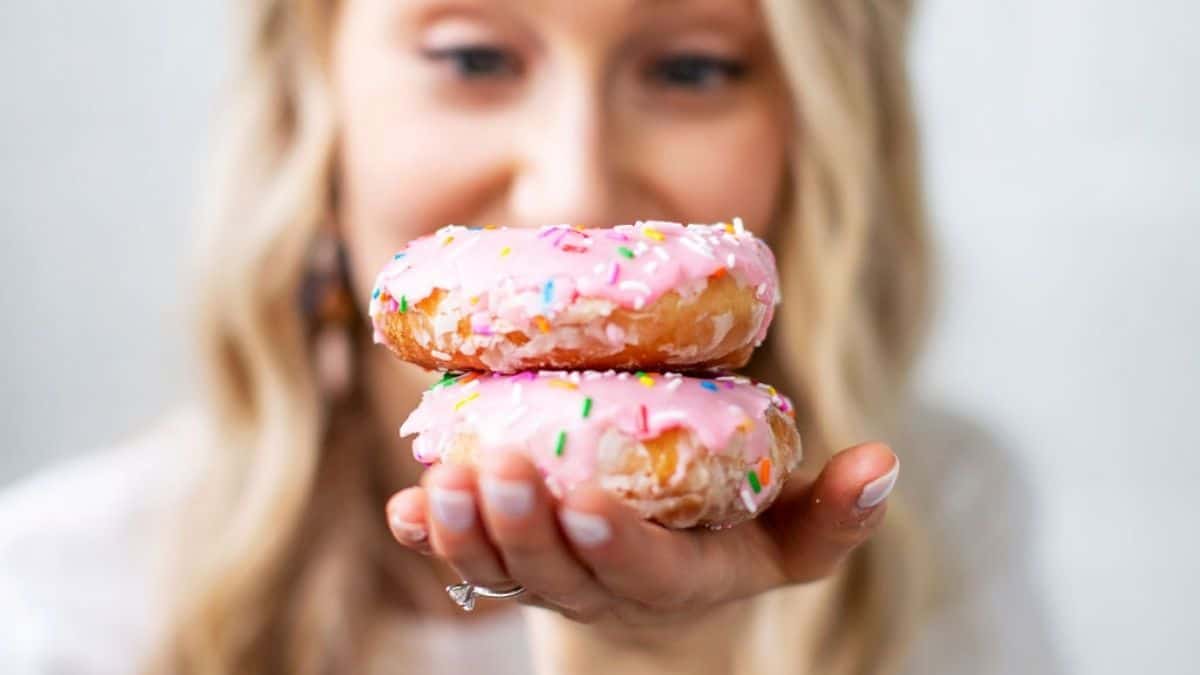
What Is A Food Rule?
A food rule is when you allow external information (such as diet plans, tips, advice, etc) to be the sole or major determinant of your food choices or feelings about a specific food or category of food with disregard to your own body’s signals, desires and feelings.
Food rules can take the form of only eating certain foods (restricting), following habits or patterns that you’ve always done with disregard to your present needs/desires, feeling certain morality towards food (salads are good, pizza is bad), having the need to ‘earn’ your food by working out in order to eat something, etc.
It’s important to note that you can have food rules even if you don’t follow or act on them. For instance, if you feel that pizza is bad, yet still eat said pizza and feel guilty over it or that you “shouldn’t” have eaten it, a food rule is still present there- the morality of food rule.
You may not think that these “pseudo food rules” or labeling food as “good” or “bad” impacts you, however food rules can be sneaky that way! These pseudo rules can actually impact the amounts of said food that you eat by instilling the all-or-nothing mentality (better eat as much now while I can!), mindless eating (wanting to check out as to not feel the guilt of eating a “bad” food”) and even influence your eating before/after (I need to ‘save up’ calories to eat this later or ‘cutting back’ on food after”.
Examples Of Food Rules
- No eating past 7pm
- 2 slices of bread is too much
- Always order a salad when dining out
- Cake is a “bad” or “unhealthy” food
- If I’m going out to eat later I have to workout that day to “earn” it
- Breakfast is at 8am, not before
- Pizza is bad, feeling guilty after eating it
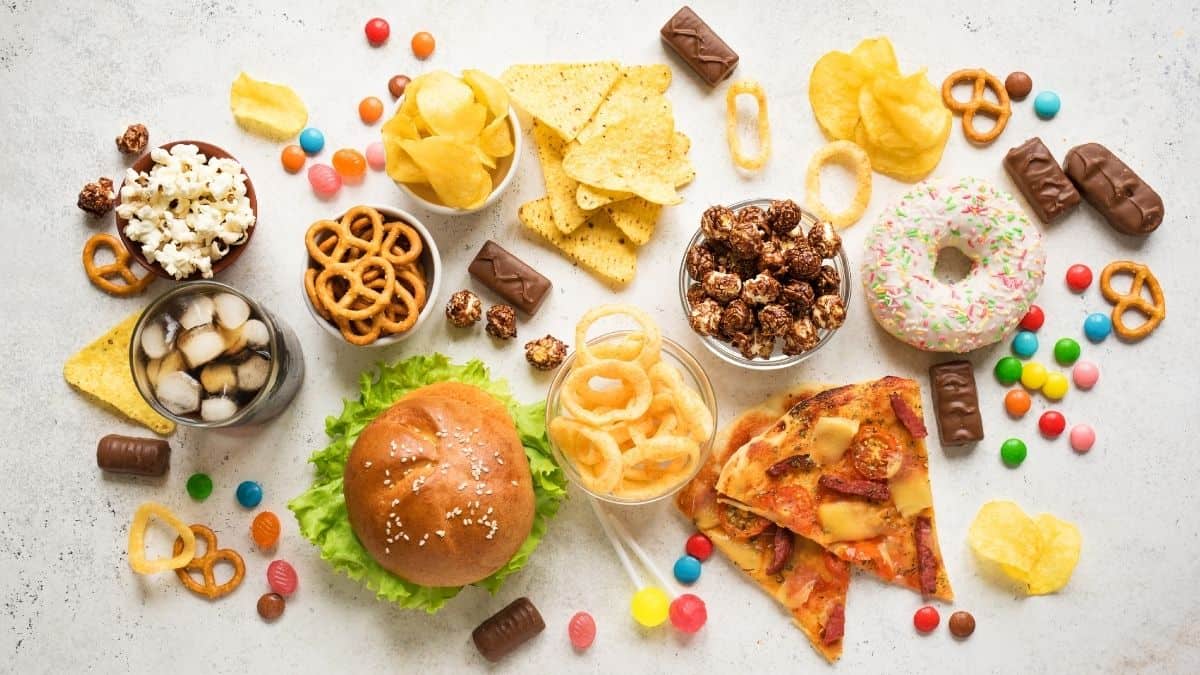
Why Are Food Rules Harmful?
Food rules are many times disguised as ways to “control” our food choices likely in an effort to be healthier. Good intention, but the execution doesn’t live up. Here are a few reasons why:
- Studies have shown that restricted access to food is linked to an increased tendency to eat that restricted food in a binge-like, addictive style.
- Following restrictive eating patterns (diets) are unlikely to lead to long-term weight loss and typically lead to “rebound weight gain” by increasing your set point weight
- Continual weight-cycling (that loss then “rebound gain”) actually may increase risk for disease
- They negatively impact our metabolic rates by slowing them
- Food obsession is likely occur
- Our social lives and relationships can take a hit
- Food rules can be stressful to follow and cause additional stress if you’re in a situation when you’re unable to follow them, causing a raise in the stress hormone cortisol which can lead to many negative health outcomes such as blood sugar imbalances, immune suppression and GI issues.
Essentially, food rules are harmful because they take away your ability to listen to your body’s needs. No one besides YOU can possibly know what you need. Heck, not even me, a Registered Dietitian can pinpoint your EXACT needs!
Nutrition isn’t just about nutrients, it’s about a complex intermingling of our bodies’ needs and wants as well as our psychological needs and emotions.
Rather than following food rules or diets I’m a huge supporter of intuitive eating. I have a blog post that explains more about what intuitive eating is, if you’re unfamiliar!
The first step towards intuitive eating, principle #1 out of 10, is to reject the diet mentality which includes bringing to light your food rules and breaking them!

How To Identify Food Rules
Firstly, I recommend grabbing yourself a piece of paper and just doing a brain-dump of the food rules that come to mind that you know you have. Get those all onto paper! Then, keep this initial list that you’ve created as a “working list” and add to it when you notice any food rules surface.
For instance, maybe you write out your food rules and think you’ve gotten them all. However, 2 days later you go to re-fill your soda and realize that picking a calorie-containing beverage is just out of the question, something you didn’t previously have on that initial list. Go ahead and add it!
Don’t put too much pressure on getting them all out in one shot. It’s normal for you to realize more and add them later on. The key is just to get a list going so you have a place to start. If you wait for that list to be “perfect” you’ll be waiting forever. Perfection does not exist!
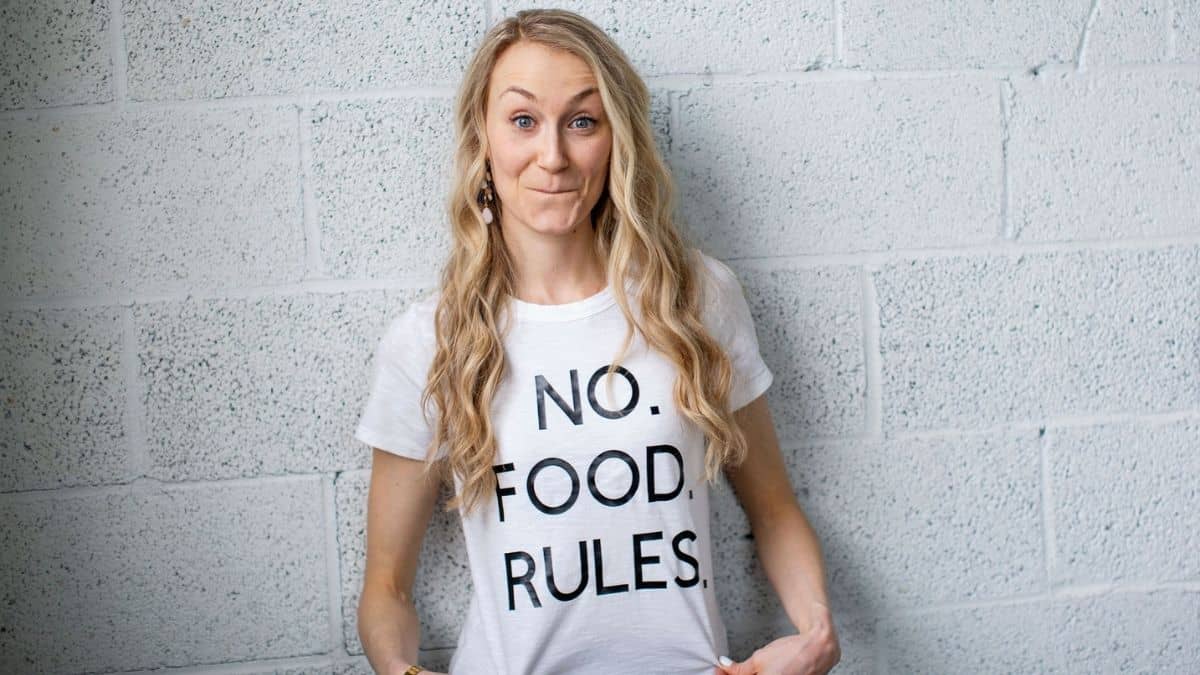
How To Break Food Rules
Now that you have your food rules written out here is what I recommend and teach members inside of The SociEATy:
Step One
Take your list of food rules and order them from easiest to hardest to break. I recommend doing this so that you’re able to ease yourself into breaking food rules, since it can seem scary! Rather than starting by jumping into the deep end of a pool you’re scared of, it’s okay to first dip your toes in.
It may seem daunting to work one by one through your food rules, however, what you’ll notice is that as you go you gain confidence and momentum. Breaking the rules starts to get easier and many times faster. So, when you get to that very scary food rule towards the end you have the confidence in yourself to break it! It’s like the snowball effect for food rules!
Step Two
Starting with number one on your food rules list make a plan to BREAK the rule and repeatedly do so until breaking the rule does not cause guilt, stress or anxiety. It’s neutral.
I recommend working the food rule into your life as many ways as possible. For instance, if your food rule is that cookies are bad, plan to eat cookies daily. You can have them as lunch dessert, crush them up and sprinkle them on smoothies or oatmeal, or dip them into yogurt for a snack! Repetition is key!
Step Three
Once you feel more comfortable about breaking this food rule move on to the next rule on your list!

How Do I Know If A Food Rule Is Broken?
It will likely take multiple rule breakings for a food rule to be TRULY broken. Just because you allow yourself to break the rule once doesn’t mean that it’s broken! Here are a few questions to ask yourself if you’re wondering if you have broken a food rule:
- Is the guilt/stress/anxiety gone when you break the food rule?
- Do you feel neutral towards the food rule?
- Is your day unaltered when this food rule is broken?
- Do you feel comfortable keeping this food in the house? (Is food rule is a specific food)
If the answer to these questions is “no” that is a good sign that your food rule may be broken!
Here is an example, let’s go back to the “cookies are bad” food rule. Say I’ve been having cookies daily for the past week and at the end of the week I’m indifferent towards cookies, feel no stress over eating them and feel comfortable having a full cookie jar in the house. The food rule is likely broken.
If I reach the end of the week and cookies still make me feel guilty when eating them it’s a signal that the rule is not broken and the food is not normalized. I would then continue to work on the cookie normalization process.
*Note: A week is just used as an example here. There is no time limit to this and each rule may take differents amount of time. However, focusing on weeks may be a good way to structure your rule breaking.
**Second note: This does not mean that if, say you’re at a birthday party that is serving cake, but cake is high on your list and you haven’t gotten there yet that you’d avoid it. Certainly not! Challenge yourself to eat and enjoy it! Working through your food rules 1×1 simple helps prevent overwhelming yourself. However, you have full right to go at your own pace and do what works for you.
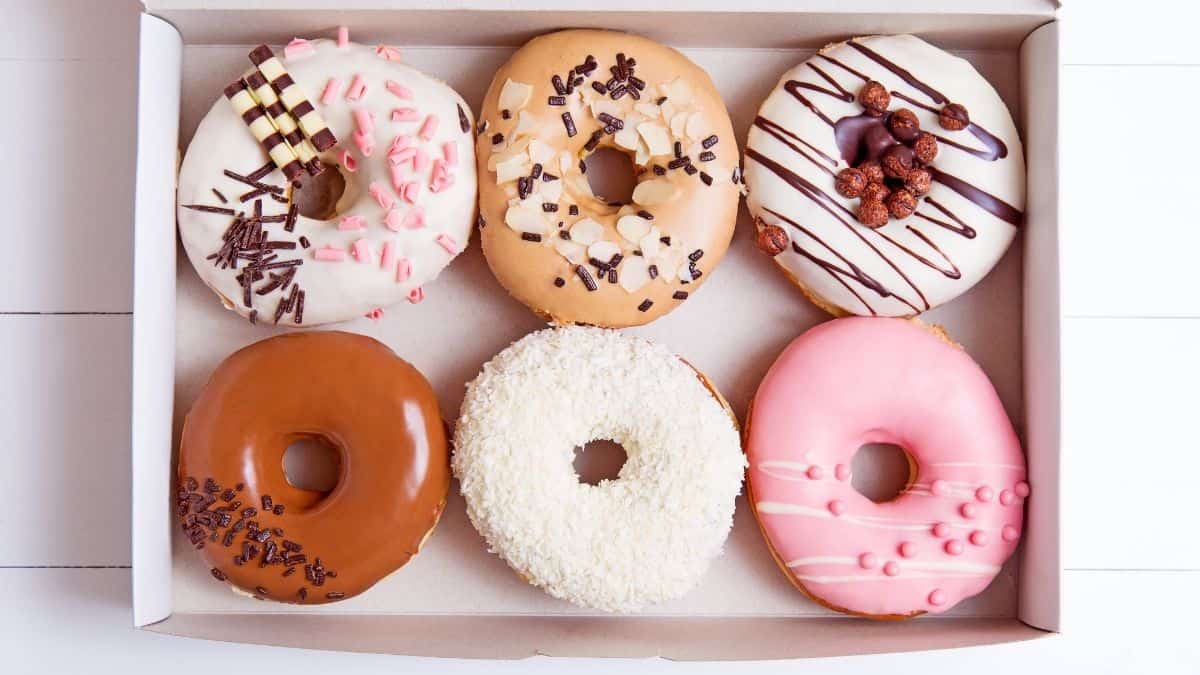
Can Food Rules Come Back?
Absolutely! It’s not uncommon for food rules to come back out during times of stress or anxiety. They can act as a coping mechanism.
For instance, say you’ve worked through so many of your food rules and are feeling fabulous! Then, all of a sudden you feel one of the rules you’ve already broken seeping back into your mind, what are you to do?!
The first thing that I recommend doing is asking yours “What ELSE is going on? What has changed?” Focus less on that food and more on your life in general. Is work super stressful? Did one of your friends start dieting and is talking to you about it? Are you feeling anxious about something? Journaling can be a great way to sort through this.
When our food rules come back out after being broken it’s not a sign that you’ve done anything wrong. It’s likely being used as a coping mechanism. Instead, ask yourself what that emotion or life change is that you’re dealing with and then come up with other ways to handle that, the root cause!
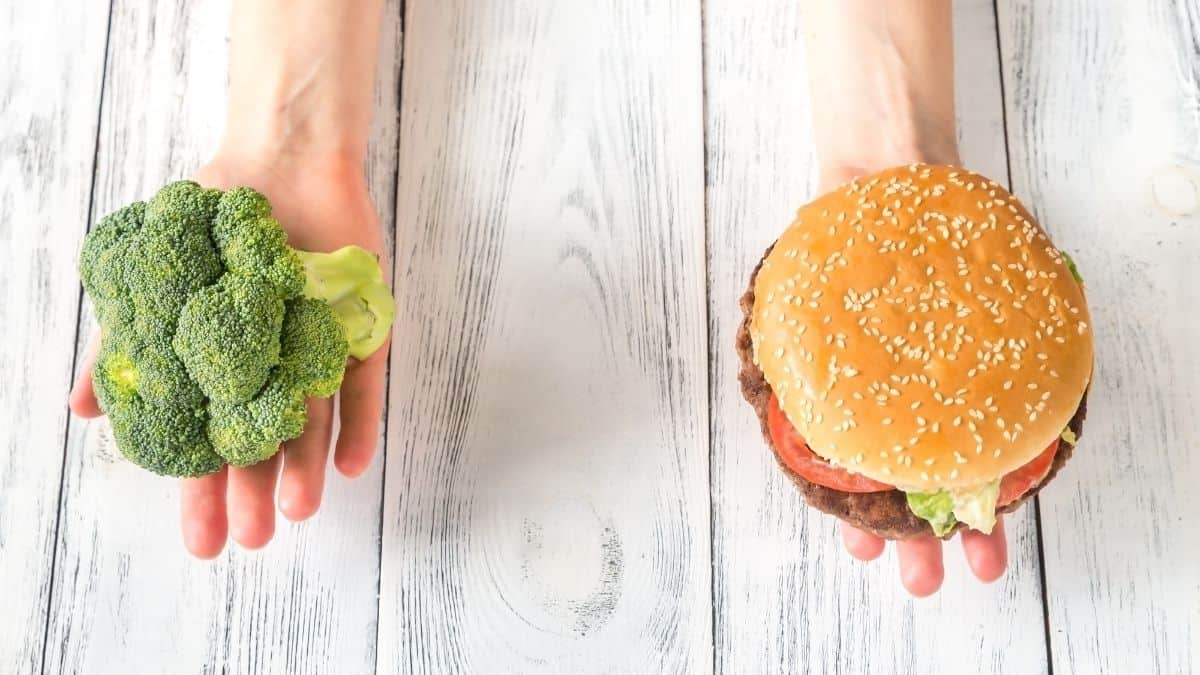
A Note On Food Rules VS Food Preferences
When breaking your food rules you may find that you don’t even LIKE a food or that you prefer the food of a previous rule. For example, say your rule is “I can only eat whole wheat pasta! White pasta is bad!” You work to break this rule by eating the white pasta but find that you’re just as satisfied and actually full longer with the wheat pasta.
It’s totally okay to prefer the wheat pasta. However, ask yourself this: Would I feel guilt/stress/anxiety if only the white pasta was served? This is a good way to keep yourself “in check”, if you will.
I have an entire post that discusses the nitty gritty of food rules VS food preferences, so be sure to give that a read!
Need more guidance? Be sure to check out my YouTube channel for more tips to help in your intuitive eating journey!
I hope this post was super helpful in allowing you to understand food rules more clearly and how to break free from them. Be sure to leave a comment with what food rule you’re most excited to break!
XOXO
-Colleen
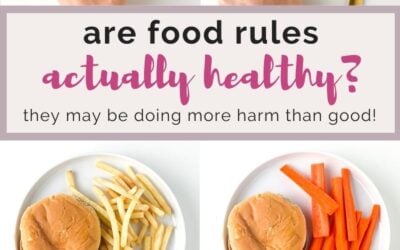

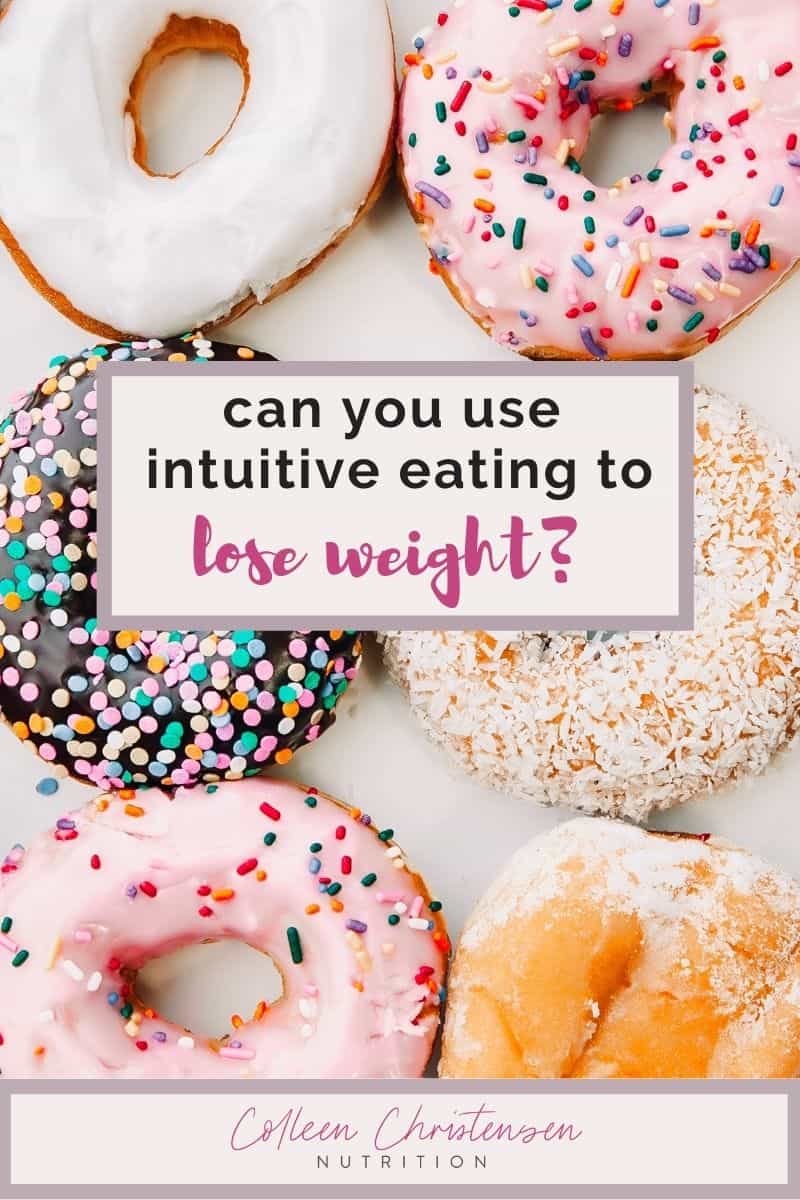
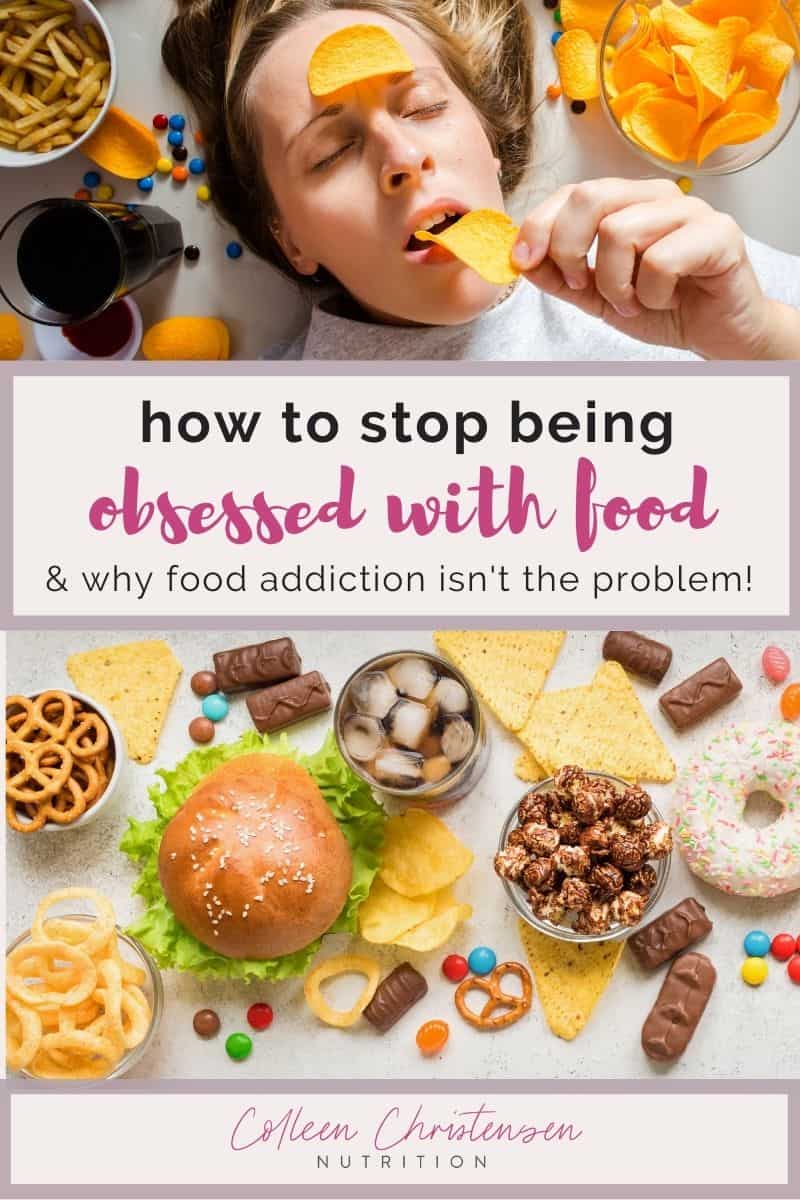
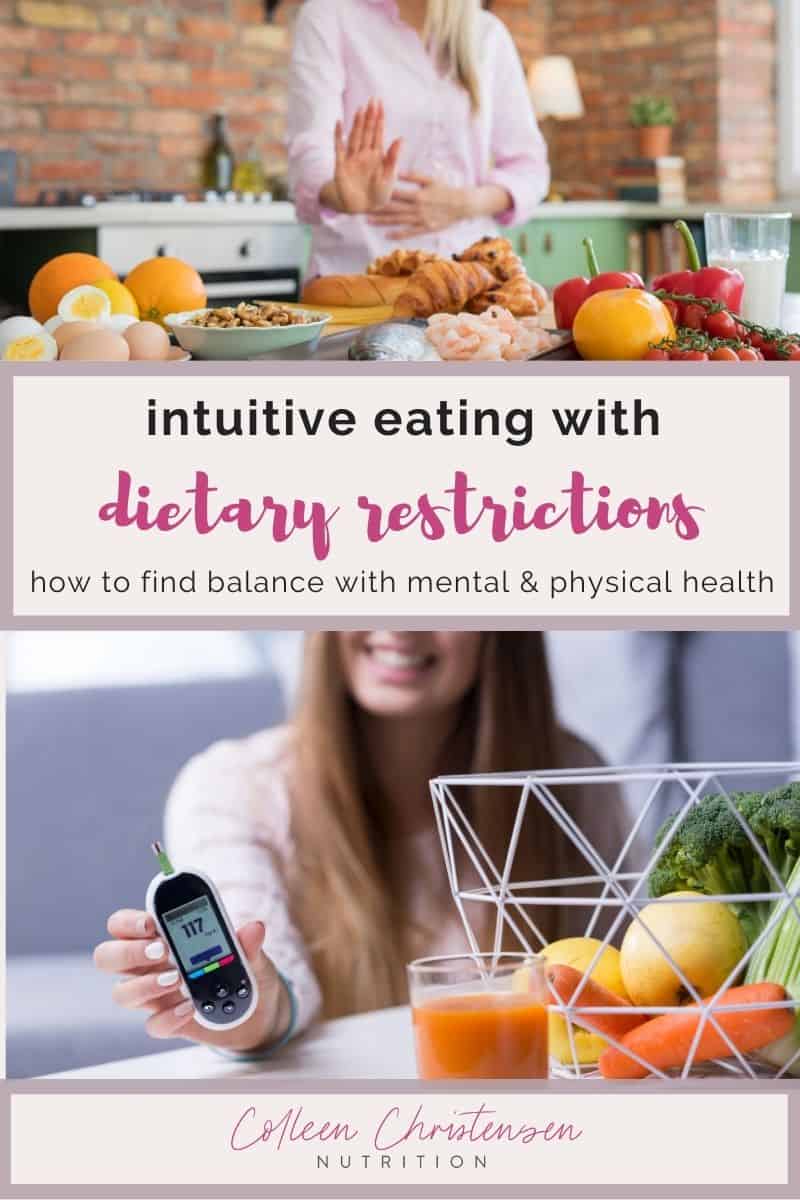
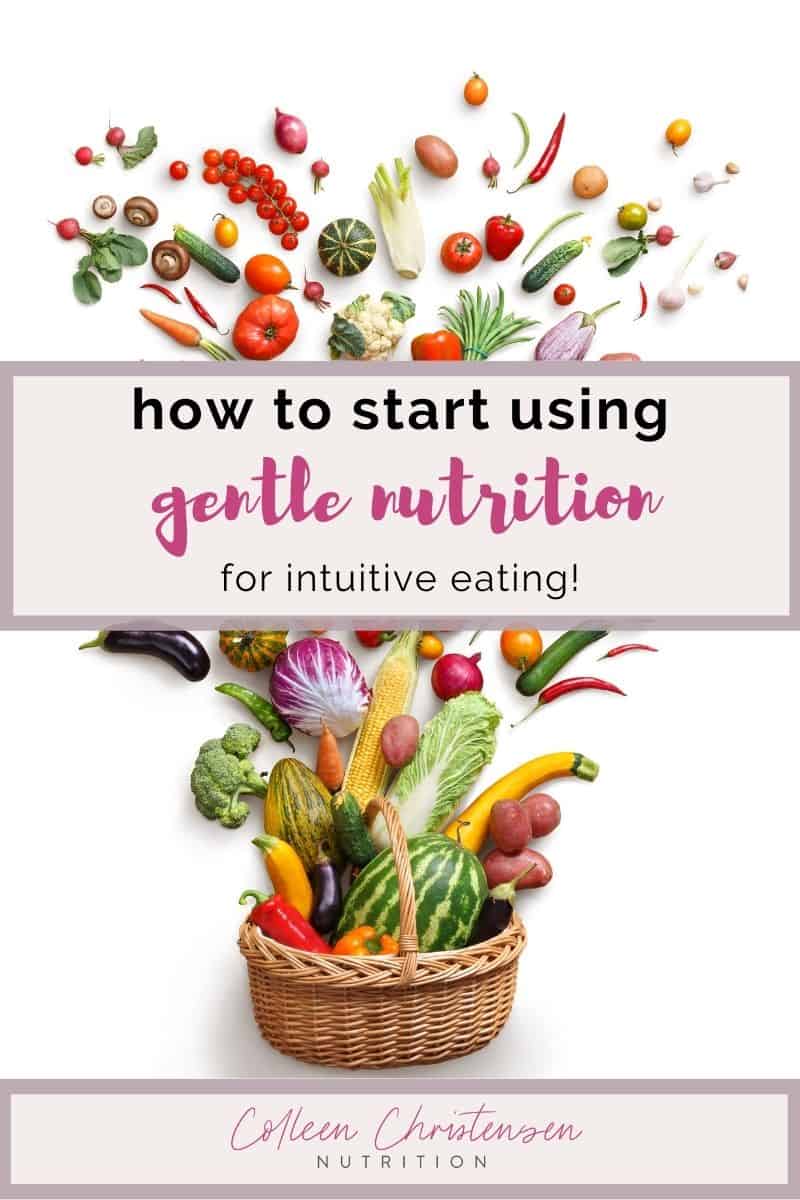

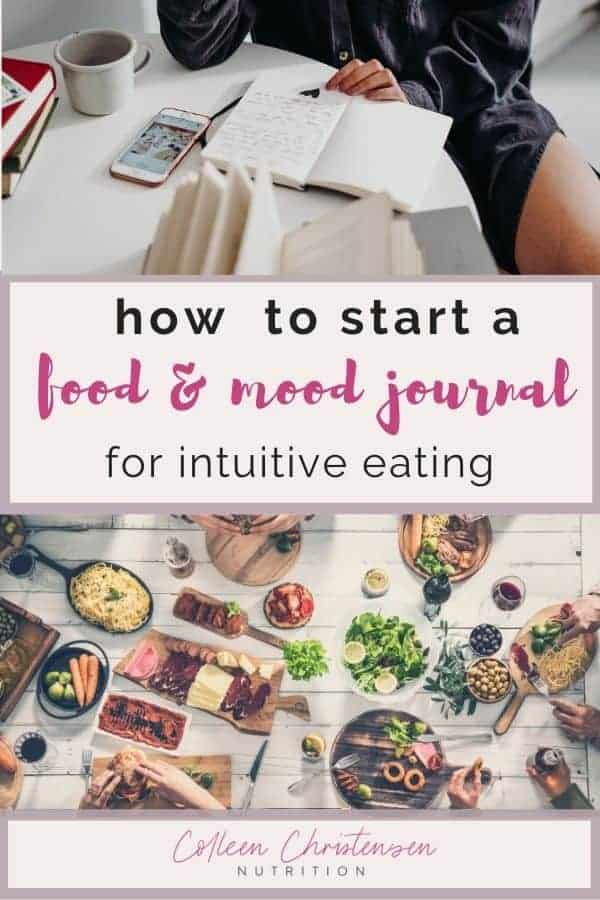
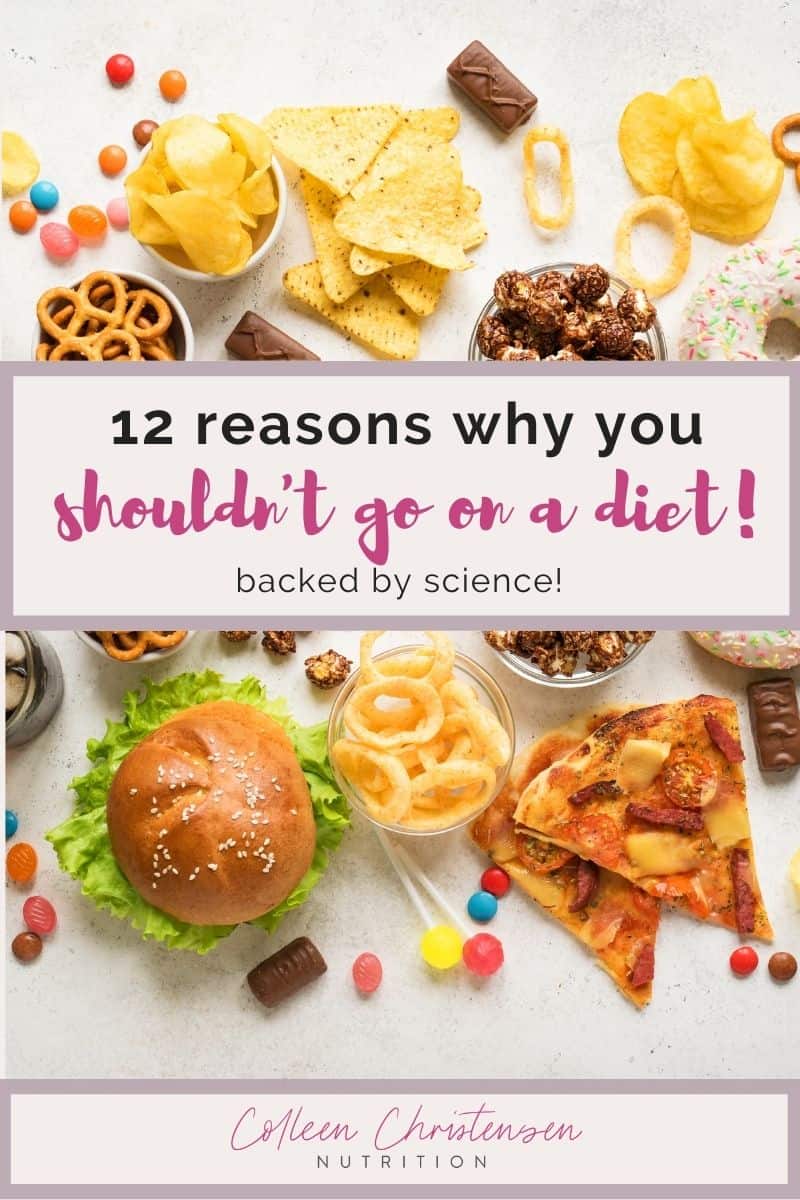


Ellen says
Thank you!
Colleen says
Always!!!